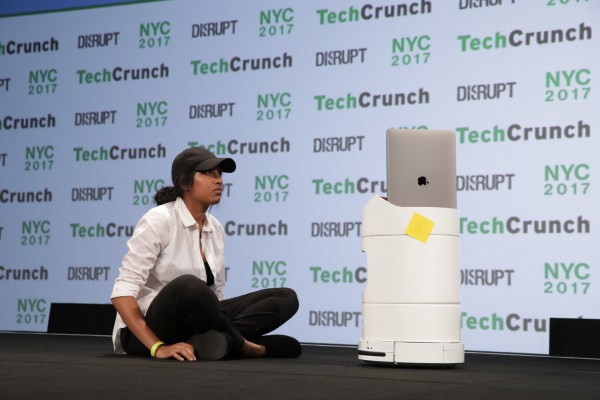At the TechCrunch Disrupt Hackathon in New York today, a team of sophomores from Rutgers University introduced a social robot, named Robota, to help teachers in special ed classrooms.
Robota uses computer vision and sentiment analysis to identify students in a classroom who appear to be distressed. Then, Robota approaches and asks the student if anything is wrong.
When a student confides, Robota converts their spoken complaints into text, then analyzes sentences to understand if any issues expressed require the immediate attention of an adult. Robota will also text a student’s parents or teachers with a summary of their complaints.
The developers of Robota, Abdullah Shareef, Aditya Shastri and Rithika Korrapolu, said research suggests that kids with special needs often experience challenges communicating with teachers and other adults in school. Sometimes, they can be especially sensitive to judgment, or anxious about disappointing authority figures, for example.
The team developed Robota with the notion that robots are nonjudgmental figures, and kids may be more willing to communicate with them, and more relaxed doing so. The team used the TurtleBot, and software from Autonomous, Clarif.ai and IBM to make their prototype.
Increasingly, robots are being put to use in mental health. Predecessors to Robota include Paro, a robotic seal designed to help people with dementia, NAO, a humanoid robot that helps kids with autism, and Intuition Robotics’ ElliQ, a companion robot developed to help elderly people maintain their mental health and social connections as they age.
